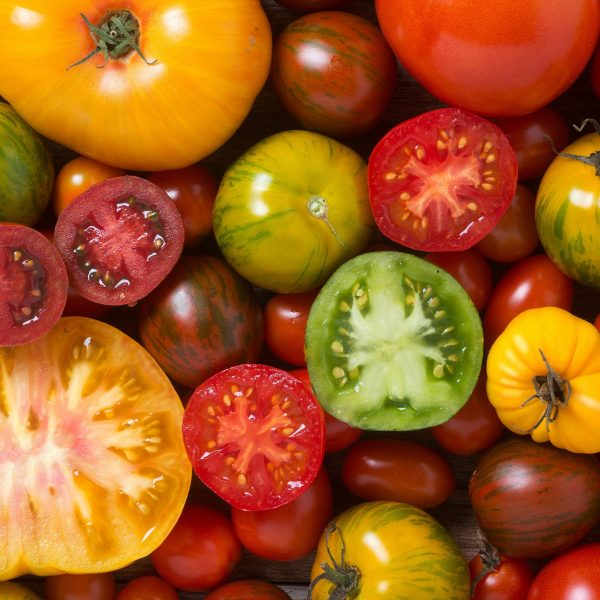If low sperm count, poor sperm motility, and morphology are your concerns, add tomatoes, watermelon, guava, papaya, ruby red grapefruit, and sundried tomatoes to your daily Male Fertility Diet. If you’re wondering why, it’s because each of these foods (and there are more) contain lycopene, a member of the carotenoid family, which has been found to significantly improve sperm health.
Lycopene is the nutrient that gives red fruits and vegetables their color. It’s a powerful free radical-fighting antioxidant. Antioxidants are most abundant in the fresh, whole plant foods we eat. They protect our cells, including sperm, from free radicals that damage our cells and promote disease. Lycopene and other antioxidants work hard to destroy free radicals so they can’t attach to and harm cells, or task the already hard-working immune system.
Male Fertility and Lycopene, The Connection
- A 2013 study in the journal Fertility and Sterility showed men who consumed a diet rich in lycopene had better quality sperm, particularly morphology.
- “A 2000 study in India examined 30 men with idiopathic infertility. All the men were given 2000 micrograms of lycopene, twice a day for three months. Their semen was analyzed after the three-month period and twenty patients (66%) showed an improvement in sperm concentration, sixteen (53%) had improved motility and fourteen (46%) showed improvement in sperm morphology.” – Men’s Health Magazine
- Clinical trials documenting the benefits of antioxidants for male fertility, sperm quality or health and on the DNA, are many. “A recent Cochrane meta-analysis on the use of oral antioxidants [vitamin E, Vitamin C, Coenzyme Q-10, selenium, zinc, lycopene and carnitine] in male infertility found that these agents significantly improved pregnancy rates and live births and decreased sperm DNA damage…”
Diversify Your Fertility Diet
What you eat, your diet is the foundation of optimal health! What you eat can greatly impact your health and influence the body’s ability to heal. We know that when battling a fertility health issue, or when simply wanting to be as healthy as possible, one of the most important areas to focus on is your diet. Two guides to help you learn more:
The Natural Fertility Diet: How to Eat for Optimal Fertility
The Male Fertility Diet
How to incorporate more lycopene in your diet:
- spaghetti sauce* over veggies, eggplant, whole grain pasta, or a piece of lean protein
- homemade pizza sauce* (bottled can contain a lot of sugar)
- a tropical fruit Fertility Smoothie or smoothie bowl
- fresh squeezed juice like our Fertility Boosting Vegetable Juice or Relaxation Juice from the 21 Day Fertility Diet Challenge eBook, but shared below:
Juice together and enjoy!
3 tomatoes*
4 stalks celery
1/2 lemon
1 red pepper
1 cucumber
It’s always best to eat a wide variety of whole fruits and veggies and then use supplements as “insurance” for your healthy diet. There are many phytochemicals, nutrients and enzymes in the whole fruit or vegetable – like fiber, vitamins C, E and A, calcium, potassium, zinc and folic acid to name a few – that the body also needs and that help with proper utilization of all the other nutrients the food offers. One of the few things in your complete control while on the path to optimal fertility is the way you eat. It is worth relearning how to eat well, so you can increase your chances of healing and healthy conception if that is your goal!
*It has been found gently cooked tomatoes provide more lycopene than raw ones. It takes as little as 2 minutes, heating whole tomatoes to 88*C or 190.4*F. It is best to cook them with a meal that also provides a small amount of healthy fat (olive oil, coconut oil, nuts or seeds, avocado, etc.) to support proper absorption by the body/in the intestines.
- A. (2016, April 20). How Lycopene Helps Protect Against Cancer. Retrieved from http://www.pcrm.org/health/cancer-resources/diet-cancer/nutrition/how-lycopene-helps-protect-against-cancer
- Barton, D. (n.d.). Fertility Boosting Vegetable Juice. Retrieved from http://natural-fertility-info.com/fertility-boosting-vegetable-juice.html
- Friedlander, B. (April 19, 2002). Italian chefs knew it all along: Cooking plump red tomatoes boosts disease-fighting, nutritional power, Cornell researchers say. Retrieved from http://news.cornell.edu/stories/2002/04/cooking-tomatoes-boosts-disease-fighting-power
- Freedman, L. (n.d.) Supplement Guide: Lycopene. Retrieved from https://www.mensjournal.com/food-drink/supplement-guide-lycopene/
- Gupta NP, Kumar R. Lycopene therapy in idiopathic male infertility—a preliminary report. International Urology and Nephrology. 2002;34(3):369–372. Retrieved from
https://link.springer.com/article/10.1023/A%3A1024483520560 - Hamada, A., Esteves, S.C., Nizza, M., & Agarwal, A. (2012). Unexplained Male infertility: diagnosis and Management. International braz j urol, 38(5), 576-594. Retrieved from https://dx.doi.org/10.1590/S1677-55382012000500002
- Lycopene Benefits for Men and Usage. (2012, September 25). Retrieved from http://www.superfoods-scientific-research.com/natural-remedies/lycopene-benefits-for-men.html
- Whitbread, D. (2017, September 12). Top 10 Foods Highest in Lycopene. Retrieved from https://www.myfooddata.com/articles/high-lycopene-foods.php
- Zareba, Piotr., et al. (2013). Semen quality in relation to antioxidant intake in a healthy male population. Fertility and Sterility. Vol. 100, Issue 6, pp 1572–1579. Retrieved online from: https://www.fertstert.org/article/S0015-0282(13)02998-1/fulltext





